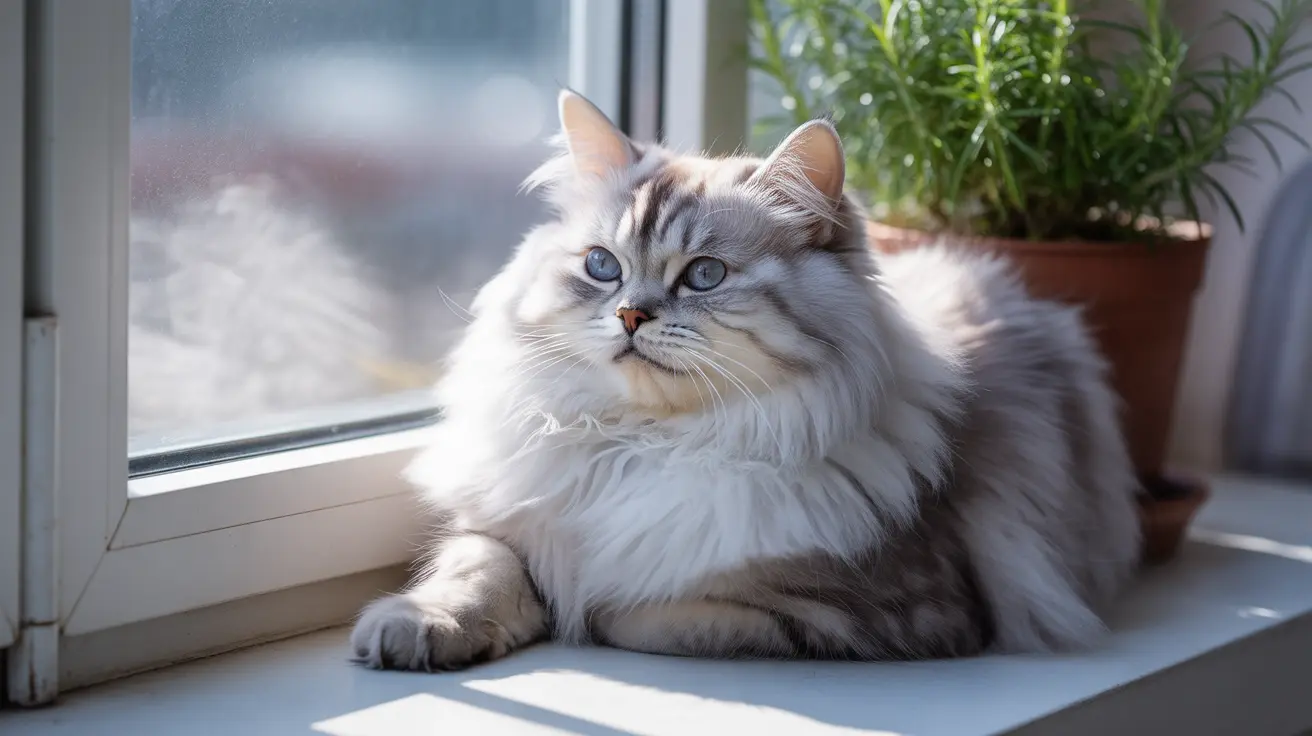If you're wondering why your cat has never produced a hairball, you're not alone. While hairballs are often portrayed as a universal cat experience, many healthy cats never develop them. This comprehensive guide will explain why some cats never have hairballs and what this means for your feline friend's health.
Understanding Cat Hairballs
Hairballs, scientifically known as trichobezoars, form when cats ingest fur during their regular grooming routine. A cat's tongue has tiny barbs called papillae that catch loose fur, which is then swallowed. While most cats process this fur naturally through their digestive system, some cats occasionally need to regurgitate accumulated fur in the form of hairballs.
Why Some Cats Never Have Hairballs
It's completely normal for cats to never have hairballs. This often indicates that your cat's digestive system is working efficiently, processing and passing ingested fur naturally through their stool. Several factors contribute to this variation in hairball formation:
Coat Type and Grooming Habits
Short-haired cats typically ingest less fur during grooming compared to their long-haired counterparts. Additionally, some cats are less meticulous groomers, resulting in less fur ingestion overall.
Digestive Efficiency
Many cats have highly efficient digestive systems that effectively process and eliminate ingested fur before it can form into hairballs. This is actually a sign of good gastrointestinal health.
The Role of Diet and Health
A cat's diet plays a crucial role in how they process ingested fur. Cats on well-balanced diets with adequate fiber content often have better digestive motility, helping them pass fur naturally. Proper hydration also supports this process.
Signs of Normal Health
A cat that never has hairballs but displays these characteristics is likely perfectly healthy:
- Regular eating and drinking habits
- Normal bowel movements
- Active and playful behavior
- Healthy coat condition
- No signs of excessive grooming
When to Consult a Veterinarian
While the absence of hairballs is usually not concerning, certain situations warrant veterinary attention:
- Repeated unsuccessful attempts to produce hairballs
- Changes in appetite or water consumption
- Lethargy or unusual behavior
- Constipation or diarrhea
- Excessive grooming or visible skin problems
Preventive Care Tips
Even if your cat never has hairballs, these preventive measures can support their overall health:
- Regular brushing to remove loose fur
- Providing a balanced diet with adequate fiber
- Ensuring plenty of fresh water
- Regular veterinary check-ups
- Environmental enrichment to prevent stress-related overgrooming
Frequently Asked Questions
Is it normal for my cat to never have a hairball?
Yes, it's completely normal. Many healthy cats never produce hairballs because their digestive systems efficiently process ingested fur.
Why do some cats get hairballs while others don't?
This varies due to factors like coat length, grooming habits, digestive efficiency, and diet. Long-haired cats and excessive groomers are more likely to develop hairballs.
How can I prevent hairballs in my cat through grooming and diet?
Regular brushing, a balanced diet with adequate fiber, proper hydration, and specialized hairball-prevention foods can help minimize hairball formation.
When should I worry about my cat's hairball or vomiting behavior?
Consult a veterinarian if you notice frequent unsuccessful attempts to produce hairballs, changes in appetite, lethargy, or digestive issues.
Does hairball frequency relate to my cat's age, breed, or digestive health?
Yes, hairball frequency can be influenced by all these factors. Long-haired breeds, older cats, and those with certain digestive conditions may experience hairballs more frequently.
Remember, a cat that never has hairballs is often a sign of good health rather than a cause for concern. However, always monitor your cat's overall well-being and consult with your veterinarian if you notice any concerning changes in their behavior or health.






